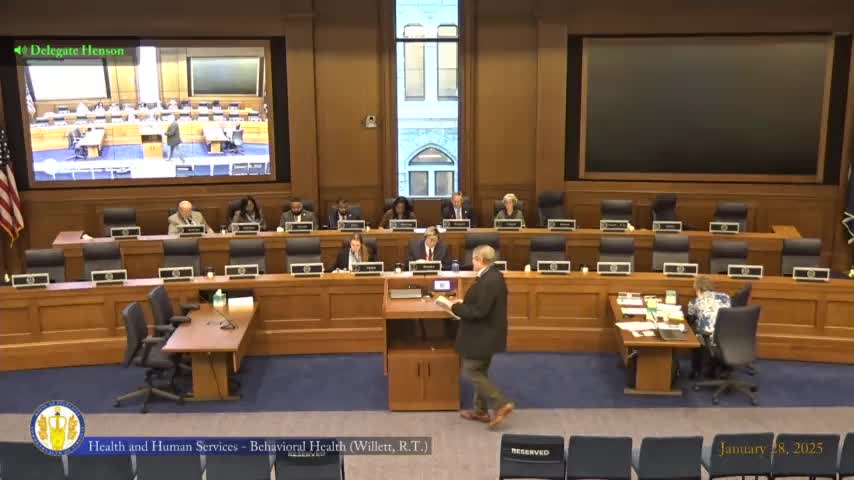Panel sends HB 2616 to appropriations to codify regional EMS councils and funding share
Get AI-powered insights, summaries, and transcripts
Subscribe
Summary
HB 2616, which sets the number of regional Emergency Medical Service (EMS) councils at not less than seven and not more than 11 and raises the councils’ share of a designated funding pot to 50%, was reported as amended and referred to Appropriations 8–0.
Delegate Ennis offered a substitute to HB 2616, which would set the number of regional EMS councils between seven and 11 and increase the share of an existing funding pool allocated to the councils. Regional EMS representatives described councils as 501(c)(3) nonprofits that coordinate training, mass‑casualty planning, mobile integrated health, whole‑blood trauma programs and other regional EMS capabilities.
Ed Rhodes, a representative of the regional EMS councils, and David Long, executive director of the Tidewater EMS Council, described recent efforts such as a whole‑blood trauma program costing about $200,000 in the past year. Witnesses said councils have seen static funding while costs have risen and argued the bill would protect and stabilize a funding stream.
Committee discussion clarified the substitute reduced an earlier proposed 55% allocation to 50% of the designated pot that the Office of EMS receives (the pot is described in testimony as 30% of a broader fee stream). The subcommittee voted to report HB 2616, as substituted and amended, to Appropriations by a recorded vote of 8–0.
